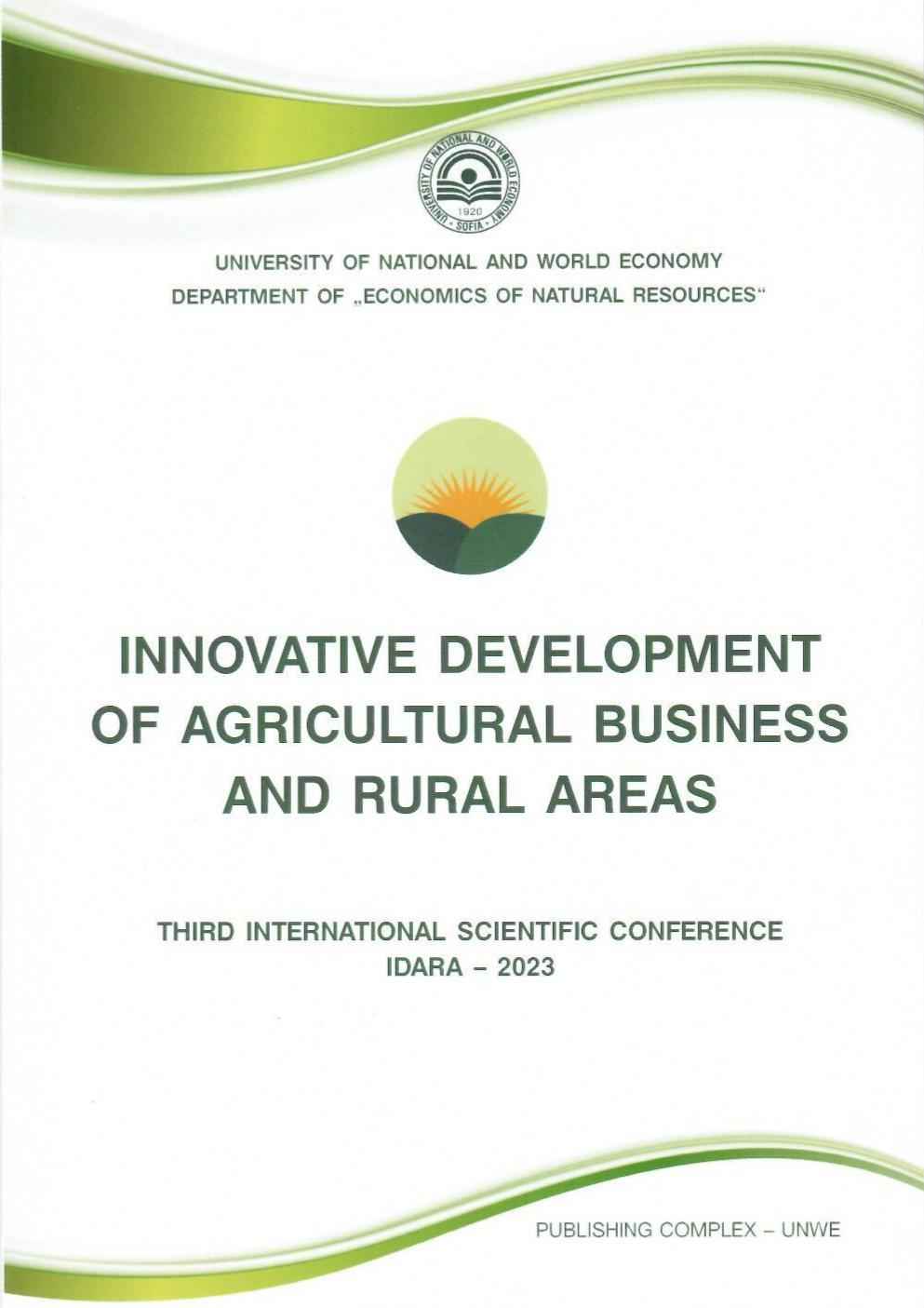Impact of Demographic Factors on Economic Activity in Bulgaria's Rural Territories
Impact of Demographic Factors on Economic Activity in Bulgaria's Rural Territories
Author(s): Julia Doitchinova, Elitsa Lazarova
Subject(s): Politics / Political Sciences, Politics, Social Sciences, Economy, National Economy, Agriculture, Sociology, Economic policy, Developing nations, Demography and human biology, Economic development, Socio-Economic Research
Published by: Университет за национално и световно стопанство (УНСС)
Keywords: demographic processes; economic activity; rural territories
Summary/Abstract: Bulgaria has one of the fastest rates of population decline in the EU and the world. In 2021, the value is observed to be 21.6% lower compared to the value recorded in 2001. Changes in rural areas are even more dynamic and have a negative impact on their development opportunities. This paper aims to examine and analyse the economic activity of the rural population using statistical data obtained from population censuses. The analysis is mainly focused on the interdependencies between economic activity, employment in agriculture and their implications for the rural economy. Correlation and regression analysis were applied to test the research hypotheses. The summary of the obtained results shows that the coefficient of economic activity rises until 2020, but activity is uneven and at different rates in different regions, with the coefficient being lower in villages at the expense of economic activity in cities; • The unemployment rate in Bulgaria has gone through three stages: until 2013, it was in double digits, then it dropped to 4.2 (in 2021), and in 2019, an increase began, which varied greatly by region. The unemployment rate is significantly higher in the villages, with the most significant differences in the younger age groups; • The correlation analysis revealed a weak, positive, and insignificant relationship between the rural population and the coefficient of economic activity, as well as the presence of a medium, positive, and significant relationship between the rural population and the agricultural labour force; According to the regression analysis, Annual work unit has a positive and significant influence on the population in rural areas, indicating that agricultural specialization and automation are still in their early stages in Bulgaria, and the workforce in the industry is structure-determining Demographic processes have a negative impact on rural development. A cyclical pattern emerges wherein a declining local economy and depopulation coexist and mutually reinforce one another. A decline in demographic potential and a lack of human capital may limit investment flow. For these reasons, investing in human capital is regarded as a critical means of reversing unfavourable trends in demographic structures and processes in all countries affected by accelerated aging and depopulation. This includes improving the health-care system, education, and other social services, as well as raising the living standards of rural inhabitants. To achieve this goal, regional demographic policies must be developed that take into account the demographic and socioeconomic characteristics of each region.
- Page Range: 73-85
- Page Count: 13
- Publication Year: 2024
- Language: English
- Content File-PDF

